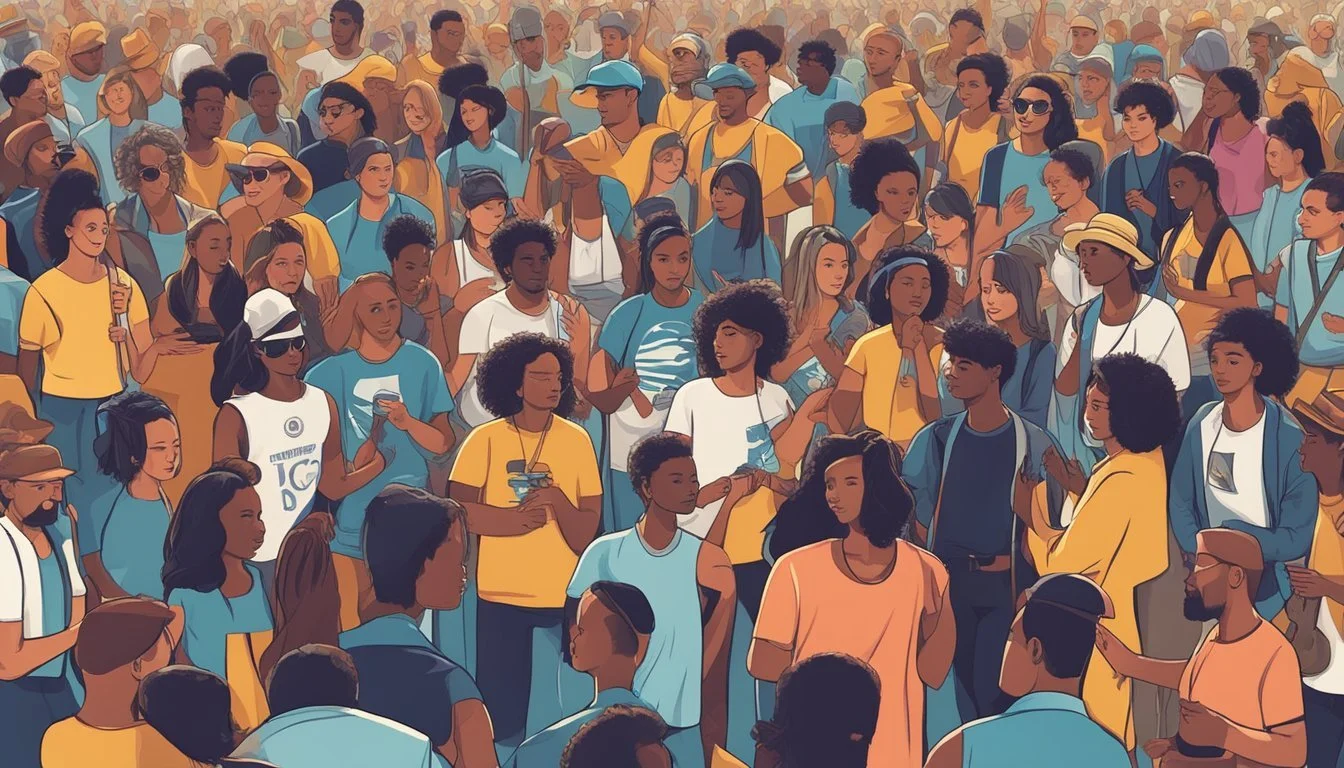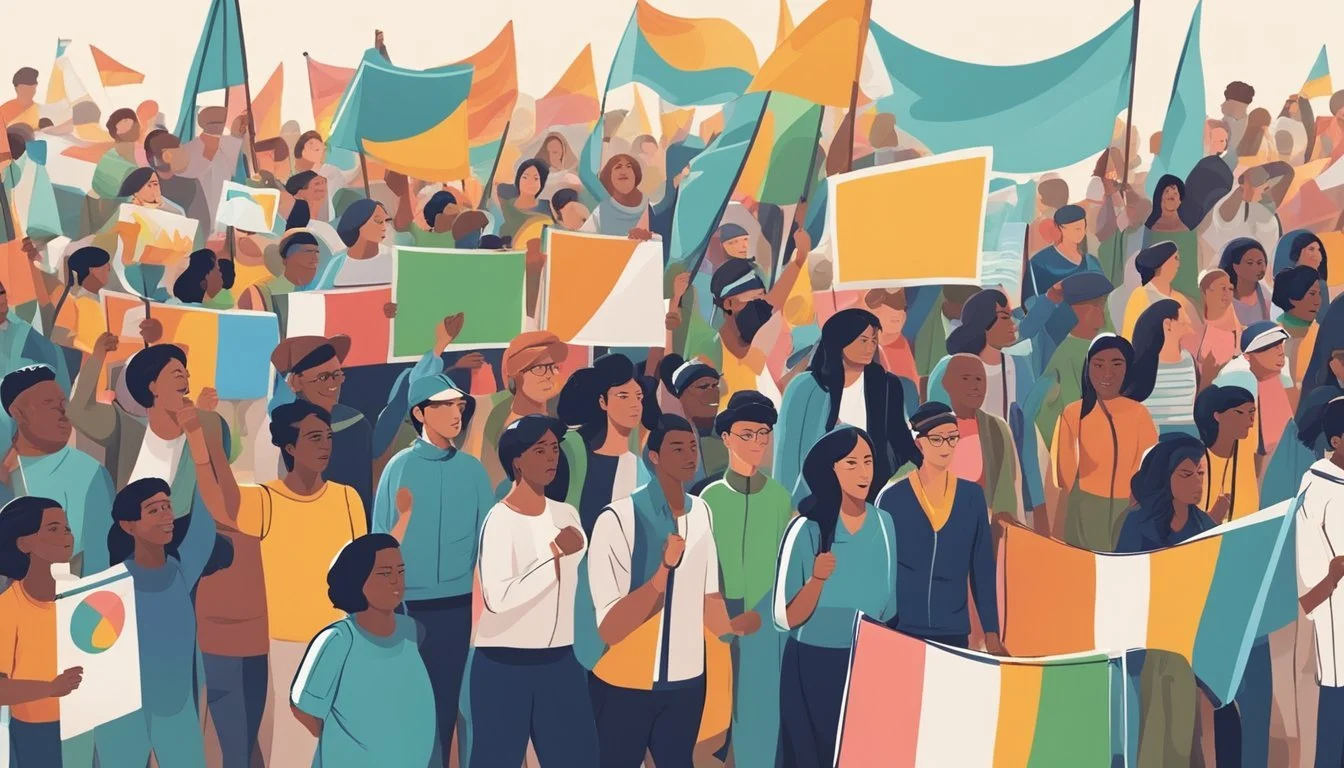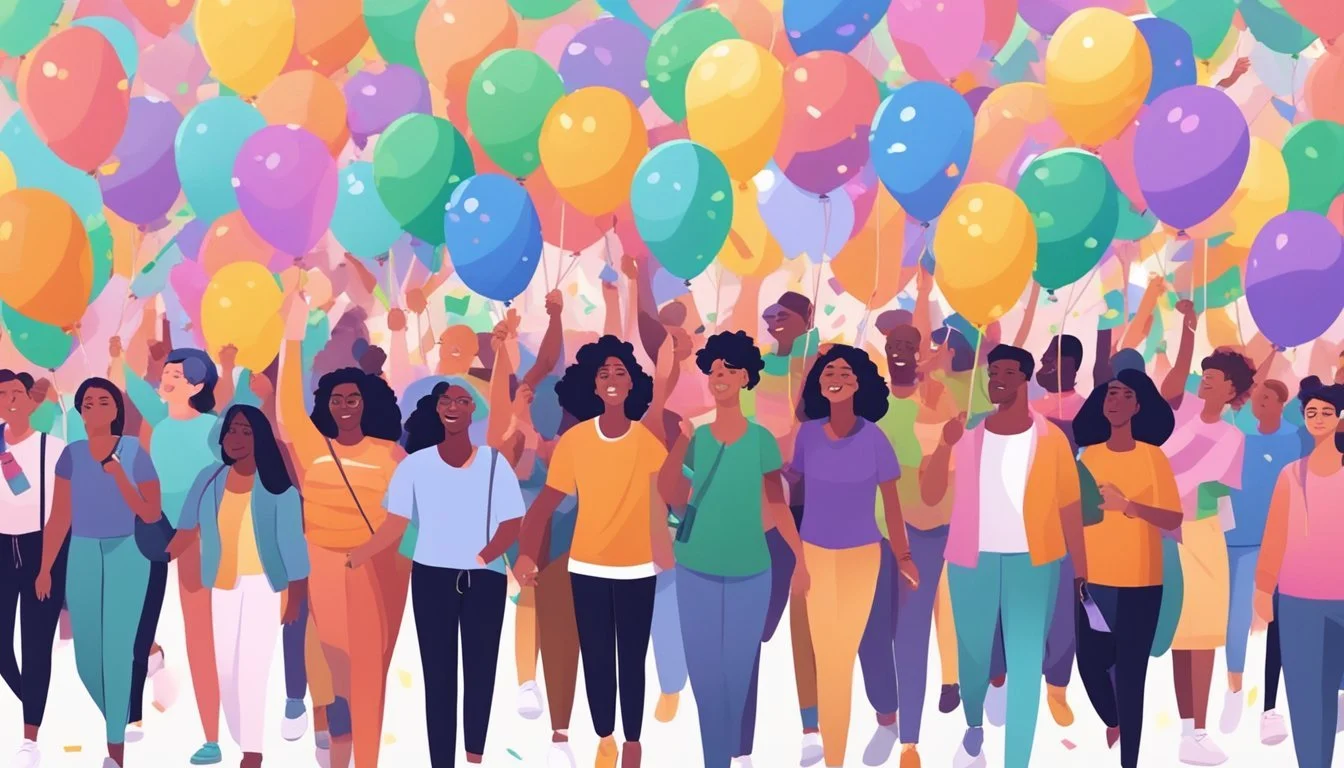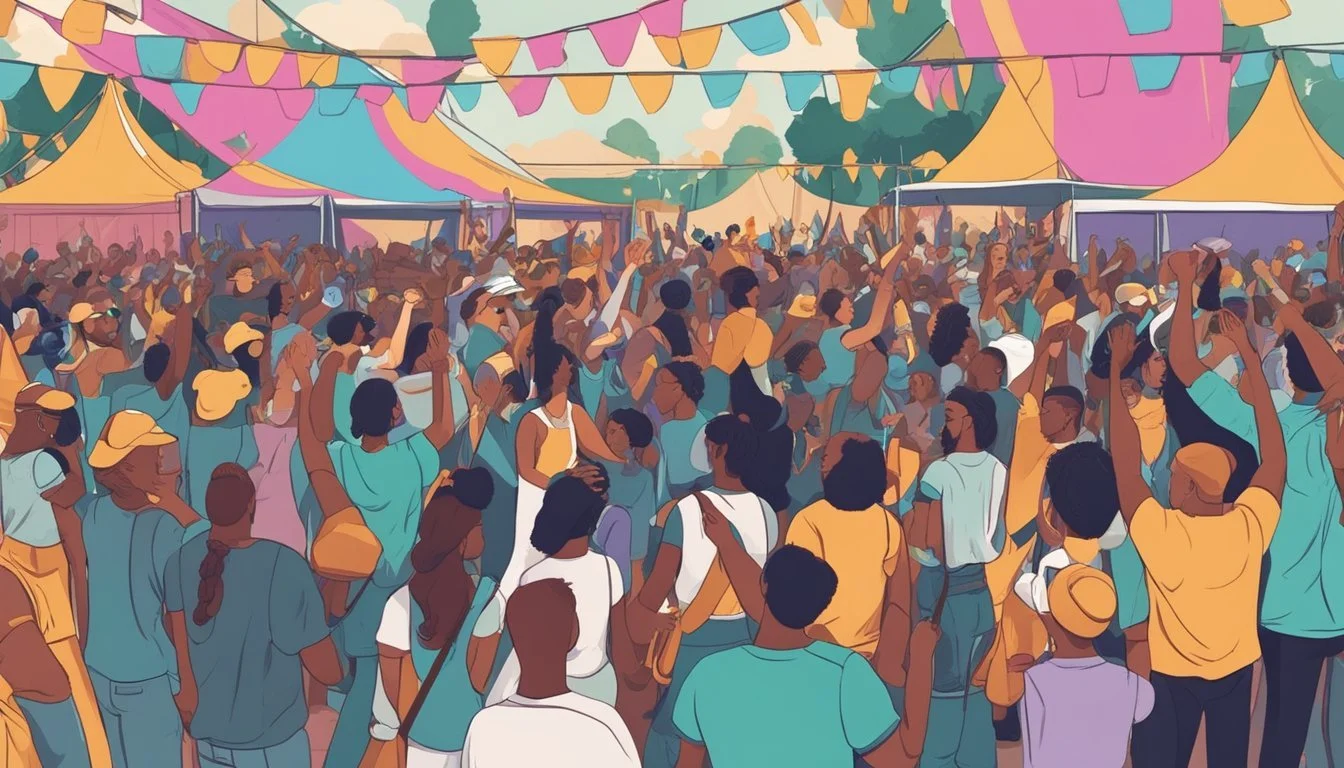5 Social Movements Documented in "Willie Nelson & Family"
A Musical Journey Through Activism
The documentary series "Willie Nelson & Family" offers a compelling look into the life and career of the iconic country music star. Beyond showcasing Willie Nelson's musical journey, the series provides insights into various social movements that have shaped American culture over the past several decades.
The documentary explores five significant social movements that intersected with Nelson's life and music, shedding light on their impact and evolution. From early legalization efforts to environmental activism, these movements reflect changing societal attitudes and the power of collective action. Viewers gain a deeper understanding of how music and social change often intertwine, with artists like Nelson playing influential roles in raising awareness and inspiring action.
1) Farm Aid Concerts
Willie Nelson co-founded Farm Aid in 1985 to support family farmers facing economic crisis. The organization's first benefit concert raised awareness and funds for struggling agricultural communities across America.
Farm Aid concerts became an annual tradition, featuring performances by Nelson and other prominent musicians. These events brought attention to the challenges faced by small-scale farmers and advocated for policies to support them.
The concerts serve as a platform for educating the public about sustainable farming practices and the importance of family-owned farms. They also raise millions of dollars to provide resources and assistance to farmers in need.
Farm Aid's impact extends beyond the music, pushing for antitrust enforcement in agriculture and highlighting concerns about corporate influence on rural communities. The organization continues to advocate for policies that support small-scale producers and promote sustainable farming practices.
Through these concerts, Willie Nelson has effectively leveraged his musical influence to create lasting change in the agricultural sector. Farm Aid remains a powerful example of how artists can use their platform to address important social issues.
2) 'Roll Me Up and Smoke Me When I Die' - Willie Nelson
Willie Nelson's song "Roll Me Up and Smoke Me When I Die" became an anthem for his unconventional lifestyle and laid-back philosophy. Released in 2012, the song showcases Nelson's signature humor and irreverence.
The track features collaborations with other notable artists, including Snoop Dogg, Kris Kristofferson, and Jamey Johnson. This mix of country and rap performers reflects Nelson's broad appeal across musical genres.
Nelson performed "Roll Me Up and Smoke Me When I Die" at his induction into the Country Music Hall of Fame in 2015. The song's performance at such a prestigious event demonstrates its significance in Nelson's catalog.
The tune's popularity stems from its catchy melody and lighthearted approach to mortality. It encapsulates Nelson's well-known advocacy for marijuana legalization and his carefree attitude towards life.
"Roll Me Up and Smoke Me When I Die" continues to resonate with fans, serving as a testament to Nelson's enduring influence on popular culture and his ability to address serious topics with a touch of humor.
3) Support for LGBTQ+ Inclusion
Willie Nelson has long been an advocate for LGBTQ+ rights and inclusion. The documentary "Willie Nelson & Family" showcases his unwavering support for the community throughout his career.
Nelson's stance on LGBTQ+ issues became widely known in 2013 when he released the song "Cowboys Are Frequently, Secretly Fond of Each Other." This track, originally written by Ned Sublette in 1981, addresses same-sex attraction in the traditionally masculine cowboy culture.
The film highlights Nelson's consistent advocacy for marriage equality. He has spoken out in favor of same-sex marriage on numerous occasions, emphasizing that love is love regardless of gender.
Nelson's support extends beyond words. He has performed at LGBTQ+ events and fundraisers, using his platform to promote acceptance and equality. The documentary features footage of these performances and interviews with LGBTQ+ fans who have been touched by his advocacy.
The film also explores how Nelson's inclusive attitude has influenced country music, an industry often perceived as conservative. His openness has paved the way for greater LGBTQ+ representation in the genre.
4) Environmental Advocacy with The Beto Woodstock Concert
Willie Nelson's commitment to environmental causes shone through at the Beto Woodstock Concert. This event, held in 2018, brought together musicians and activists to support Beto O'Rourke's Senate campaign and promote environmental awareness.
Nelson performed alongside other artists, using his platform to highlight pressing ecological issues. The concert focused on renewable energy, sustainable agriculture, and climate change mitigation.
Attendees were encouraged to reduce their carbon footprint and support eco-friendly initiatives. The event featured booths providing information on conservation efforts and sustainable living practices.
Nelson's participation underscored his long-standing dedication to environmental protection. His involvement helped draw attention to the intersection of politics and environmental policy.
The concert successfully raised funds for both O'Rourke's campaign and various environmental organizations. It demonstrated the power of music to mobilize support for crucial social and environmental causes.
5) Efforts for Indigenous Rights Awareness
Willie Nelson has been a vocal advocate for Indigenous rights throughout his career. The documentary "Willie Nelson & Family" touches on his involvement in raising awareness about issues facing Native American communities.
Nelson has performed at benefit concerts supporting Indigenous causes and used his platform to speak out against injustices. He has highlighted the importance of honoring treaties and protecting sacred lands.
The film explores Nelson's friendships with Native American activists and artists. It shows how he has amplified Indigenous voices through collaborations and public statements.
Nelson's efforts have helped bring attention to specific Indigenous rights campaigns. This includes opposition to pipeline projects on tribal lands and support for Native American-led environmental protection initiatives.
The documentary depicts Nelson as a longtime ally in the struggle for Indigenous sovereignty and cultural preservation. It showcases his commitment to using music as a tool for social change and cross-cultural understanding.
Overview of Social Movements in America
Social movements have shaped American history, driving progress on civil rights, labor laws, and environmental protection. Music has played a pivotal role in amplifying these causes and inspiring change.
Historical Context of Social Change
The 1960s and 1970s saw a surge in social activism across the United States. The civil rights movement fought against racial discrimination and segregation. African Americans organized sit-ins, marches, and protests to demand equal rights and opportunities.
The women's liberation movement gained momentum, pushing for gender equality in the workplace and society. Activists campaigned for reproductive rights and combated sexist attitudes.
The anti-war movement opposed U.S. involvement in Vietnam. Students led demonstrations on college campuses, while veterans joined peace rallies. This grassroots opposition helped shift public opinion against the war.
Role of Music in Social Activism
Musicians have long used their art to support social causes. Folk singers like Bob Dylan and Joan Baez wrote protest songs that became anthems for the civil rights and anti-war movements. Their lyrics raised awareness and inspired action.
Benefit concerts brought together artists to support various causes. The 1985 Live Aid concert raised funds for famine relief in Ethiopia. Farm Aid, co-founded by Willie Nelson, has advocated for family farmers since 1985.
Hip-hop emerged as a powerful voice for urban communities. Artists like Public Enemy addressed racial injustice and police brutality through their music. This tradition continues with modern artists using their platforms to support Black Lives Matter and other movements.
Influence of Willie Nelson on Social Movements
Willie Nelson's impact extends far beyond music into social and political activism. His advocacy work spans decades and covers a wide range of causes, from environmental protection to small farmers' rights.
Activism Through Music
Willie Nelson has used his musical platform to raise awareness for various social issues. In 1985, he co-founded Farm Aid, an annual benefit concert supporting family farmers. The event has raised over $60 million to date.
Nelson's song "Milk Cow Blues" drew attention to the plight of dairy farmers. He also recorded "What Can You Do?" to promote environmental conservation.
In 2005, Nelson released "Cowboys Are Frequently, Secretly Fond of Each Other," advocating for LGBTQ+ acceptance in country music. The song became an anthem for inclusivity in the genre.
Collaborations with Other Activists
Nelson frequently partners with other activists to amplify their messages. He joined Neil Young in opposing the Keystone XL pipeline, performing at benefit concerts and speaking out against its construction.
In 2018, Nelson headlined a rally for Texas Senate candidate Beto O'Rourke, using his influence to encourage voter participation. He's also worked with NORML (National Organization for the Reform of Marijuana Laws) to advocate for cannabis legalization.
Nelson collaborated with Occupy Wall Street protesters, performing at their events to support economic equality. His partnerships with various activists have helped bring attention to diverse social causes.






